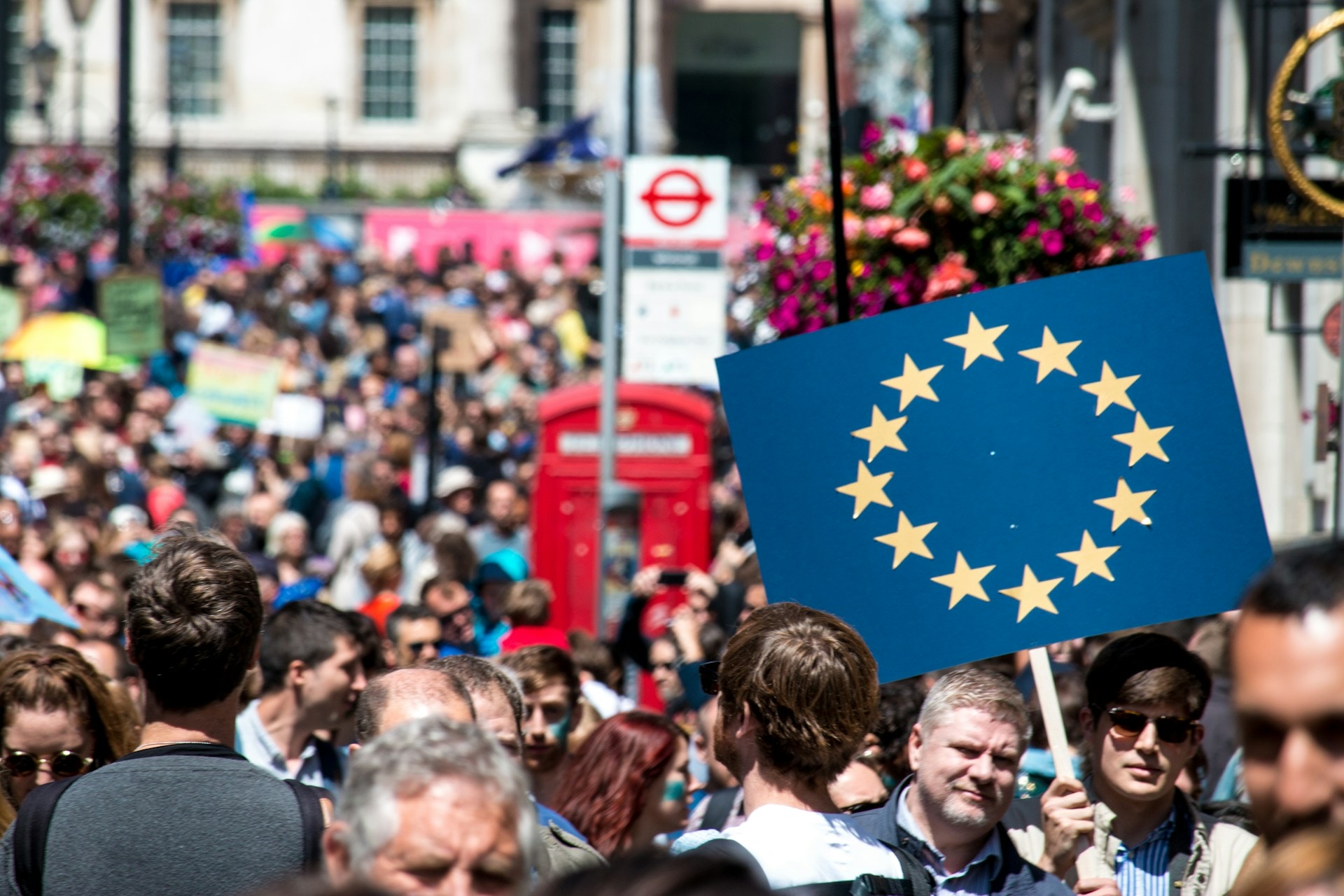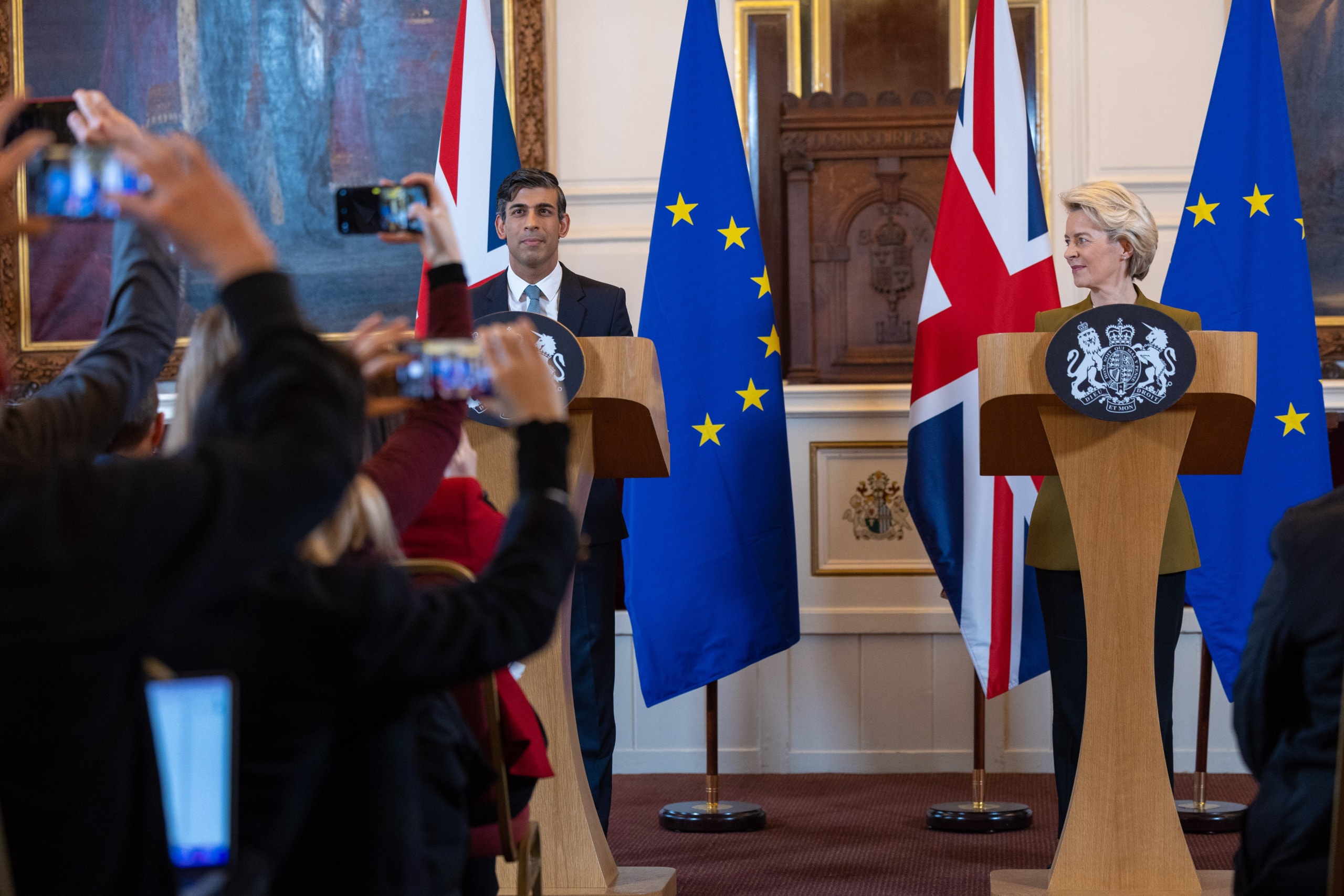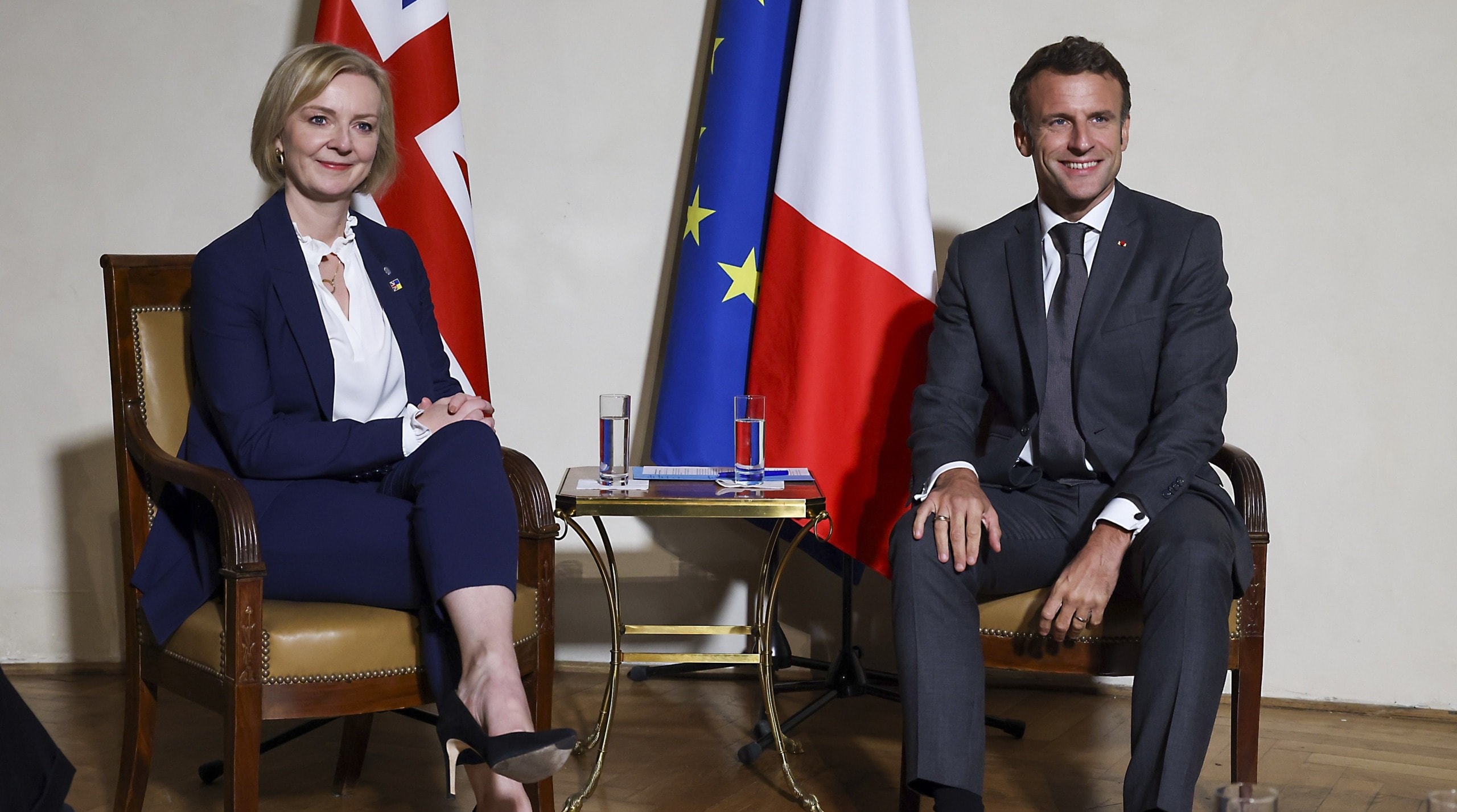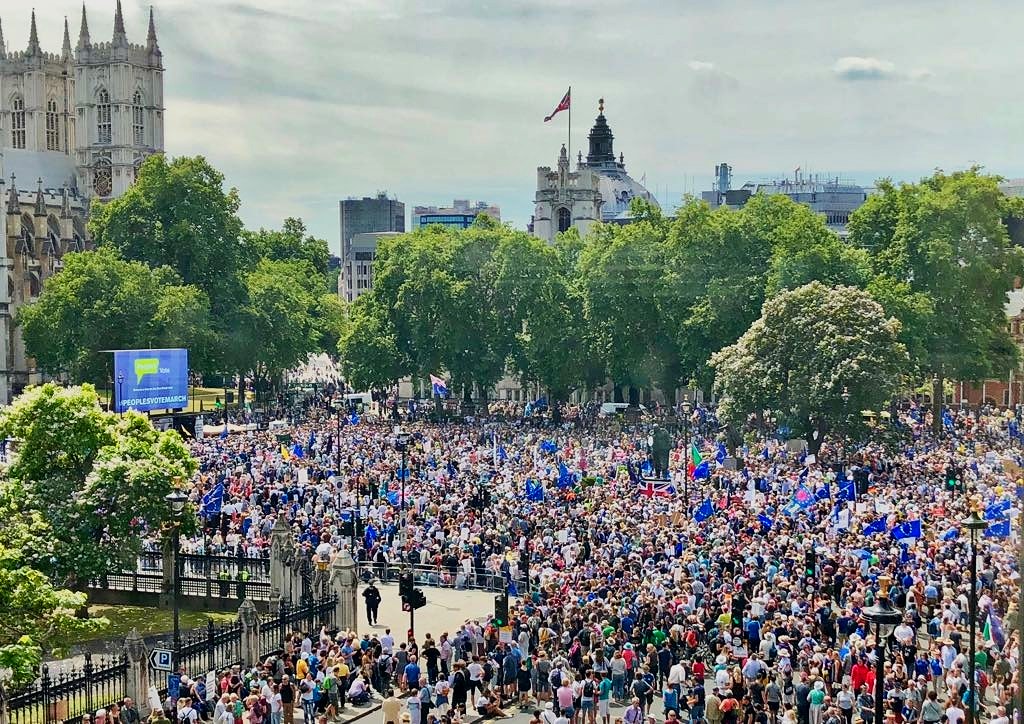Are we approaching the point of no return with Brexit? And is there anything that can be done? It can’t be proved, but it looks suspiciously like Prime Minister Theresa May is deliberately engineering drama in order to get her “deal” – the Withdrawal Agreement with the EU – approved by the U.K. Parliament. She seems to be pushing the clock to the last minute before midnight of 29 March – Brexit’s deadline, the date she set herself by triggering Article 50, now almost two years ago.
Update (11 February) British business is in a panic: Listen to CBI Director Carolyn Faibairn on the Ridge on Sunday political show, 10 February 2019:
“We are in the emergency zone of Brexit.”
CBI director @cbicarolyn tells #Ridge businesses are discussing job cuts over the possibility of a no-deal #Brexit.
Follow live political updates and reactions here: https://t.co/kDmGQwMgrj pic.twitter.com/FGkPnqNJbF
— Ridge on Sunday (@RidgeOnSunday) February 10, 2019
Theresa May is aiming for 29 March like a straight arrow, telling Parliament that she sees no possibility of a second referendum. That’s something she has said many times over the past year: There will be no second Brexit referendum. And even less new elections. A proposed cross-party amendment to Theresa May’s Brexit plan calling for a “people’s vote” was ditched earlier last week because of lack of Labour party support.
Poor Britain, one could feel sorry that at this crucial juncture, the U.K.’s two leading politicians are clearly anti-Europeans and don’t have at heart the welfare of their fellow citizens. They are not the kind of people who will revise their opinions in the light of emerging evidence that Brexit is a very bad idea.
Theresa May started in the Remainers’ camp when she was still in Cameron’s government, but after Brexit, she saw her opportunity to become Prime Minister and she quickly jumped to the other side. Clearly, she won’t let go – not until she has Brexit where she wants, beyond the point of no return. As to Jeremy Corbyn, the Labour leader, he has been a Euro-skeptic all his life and he’s not about to change his opinions, even if Brexit in fact hurts the working classes the most.
Bloomberg’s Brussels Edition calls it “Brexit Fog” as no deal for an orderly withdrawal is yet in sight. As far as the EU is concerned, the deal struck with Prime Minister Theresa May last month is the only possible one, nothing else can be envisaged. May is currently trying to win over Labour Party rebels to her deal and more generally, laying the groundwork for a possible delay on Brexit. At the time of writing, nobody knows whether she can succeed or not. And plans are reportedly made to evacuate the Queen should there be riots in London if a no-deal Brexit “turns ugly”.
Brexit is unquestionably the most damaging foreign policy move the U.K. has ever contemplated in its whole History. With Brexit now approaching the point of no return, the costs of a “no deal Brexit” are becoming painfully clear to everyone.
No-Deal Brexit Damage to the U.K.
The U.K. food industry is in a panic, expecting a food emergency to explode after March 29 when all the borders with the EU will close down. On 28 January, UK food retail chief executives issued a “no-deal Brexit” warning in a letter that was also signed by Marks & Spencer managers. They noted:
“Our supply chains are closely linked to Europe – nearly one third of the food we eat in the UK comes from the EU. In March, the situation is more acute as UK produce is out of season: 90% of our lettuces, 80% of our tomatoes and 70% of our soft fruit [are] sourced from the EU at that time of year. As this produce is fresh and perishable, it needs to be moved quickly from farms to our stores,”
The problem is the “just-in-time” food supply chain. If it is disrupted, it will be a disaster foretold.
Food retailers are stockpiling food where possible but all the available frozen and chilled storage space in the U.K is already in use and there is little further general warehousing space. The UK authorities might decide not to check products at the border, but the French have already announced they will enforce sanitary and customs checks at Calais as they are forced to do on all exports from the EU to outside countries. As a result, freight trade at Calais and Dover is expected to be reduced by as much as 87%.
In short, food will cost more and the poorest will be hit the hardest.
But food is not the only industry hit by a no-deal Brexit – all areas, from fashion to cars are going to hurt, and the working classes in particular will feel the pain as factories shut down and jobs move abroad.
The problem is that for 30 years, industry supply chains have been built to fit into the EU system. To repurpose them will be a gargantuan task, made all the more difficult as the U.K.’s free entry into the vast EU market closes up, discouraging investors and extra-European manufacturers like the Japanese who have used the U.K. as a door to jump into Europe.
The so-called “Ireland backstop” is another potentially catastrophic problem. The whole of Ireland, North and South, does not want the clock to be turned back to a state of war. In the words of Irish Foreign Minister Simon Coveney:
“It is vitally important that politicians in Westminster understand the overwhelming wish across society in Northern Ireland not to return to borders and division of time past”.
No-Deal Brexit Damage to the E.U.
The damage will be far more serious than is commonly thought.
On 30 January, an EU Commission press release expressed the Brexit conundrum in a nutshell, noting that “on 14 November 2018, the negotiators of the Commission and the United Kingdom agreed on the terms of the Withdrawal Agreement” and that “on 25 November 2018, the European Council (Article 50) endorsed the Withdrawal Agreement”; then concluding: “The ratification of the Withdrawal Agreement in the United Kingdom is currently uncertain”.
“Uncertain”is an exquisitely diplomatic way to put it.
There are just two possible main scenarios, in the words of the EU Commission (highlights added):
- “If the Withdrawal Agreement is ratified before 30 March 2019, EU law will cease to apply to and in the UK on 1 January 2021, i.e. after a transition period of 21 months. The Withdrawal Agreement includes the possibility for a single extension of the transition period for up to one or two years.
- If the Withdrawal Agreement is not ratified before 30 March 2019, there will be no transition period and EU law will cease to apply to and in the UK as of 30 March 2019. This is referred to as the “no deal” or “cliff-edge” scenario.”
In short, for the EU, the U.K. becomes a third country like any other and trade relations are governed by WTO rules – from one day to the next. With huge damages to the U.K. but also to the EU.
The consequences are dire as clearly explained in this video by TDRL News, an independent website that has produced a vast number of explanatory videos on Brexit, gaining a growing audience among an appreciative British public:
The EU Commission has been getting ready for such an outcome for months. Over the past year, it has published 88 sector-specific preparedness notices to inform the public about the consequences of the UK’s withdrawal in the absence of any Withdrawal Agreement. They are available in all official EU languages. And on 30 January, it released a stunningly complex contingency action plan and tabled eight legislative preparedness proposals for measures that must be adopted irrespective of whether the United Kingdom’s withdrawal is orderly or otherwise.
Return From Brexit: A Second Referendum?
The EU message to U.K. politicians is clear. TINA, as Margaret Thatcher used to say, there is no alternative. Whether Prime Minister May and her Brexiteer friends believe it or not, is an open to question. They like to pretend a “better” deal can be negotiated.
This is like a poker game, everyone is lying about their next move.
At the same time, and because of the dangers of such silly games, chances for a no-deal Brexit have considerably increased since January 30. It is the “default” solution, as former Greek Finance Minister Varoufakis explains in this interesting interview with the BBC:
Yet, ultimately, the EU is a “political project” as Irene Lozano, a junior foreign minister in Spain says in that video: For the EU Commission, “it is more important to preserve the political unity of their members” than budge on Brexit. She clearly has sympathy for Britain. She is reportedly in London trying to make bilateral agreements with the U.K. No doubt the U.K has friends in Europe and Spain is not the only EU member country who will try to do this.
Still, EU-U.K. relations are a minefield. If Ireland is a problem, so is Gibraltar. On 2 February 2019, a footnote in one the EU’s contingency plans (talking about tourist travel arrangements) described Gibraltar not as a “British overseas territory” (the standard term) but as a “colony of the British crown”. This caused yet another diplomatic spat. And Isabel Celaá, a Spanish government spokeswoman, was quick to reiterate that Spain was “committed to regaining sovereignty” over Gibraltar.
A paradoxical result of Brexit is the rising popularity of the EU: No nationalist-populist movement anywhere on the continent is now seriously proposing a referendum to exit the Union. As the New York Times titled, the messier Brexit gets, the better Europe looks, noting that “there is a growing sense, even in the populist corners of the continent, that if this is what leaving looks like, no, thank you.”
Rather than resorting to a referendum, what populists are now trying to do is to focus on winning the May elections for the European Parliament – with the help of Steve Bannon no less – and bring down European institutions from within.
Yet, as Varoufakis says, there is an unaddressed democratic deficit both in Britain and in the EU. As he put it, “British politics is being poisoned” by Brexit and Westminster appears unable to solve the issue.
Varoufakis is not the only one voicing such negative opinions. Anthony Clifford Grayling, a highly regarded British philosopher and author of over 30 books, currently master of the New College of the Humanities in London, would agree.
As Grayling sees it, the problem of U.K. democracy, in a nutshell, is that Parliament is not representative of the will of the people. And the iron grip the government has over it, as he explained in his most recent book Democracy and its Crisis only makes matters worse.
In a remarkable lecture he gave in New York, at the Carnegie Council, as well as in his book, he argued forcefully that:
- The Brexit vote did not reflect the will of the majority of the people because the referendum was badly organized (as referendums often are): No threshold was included (this is normal procedure for any important referendum, to ensure that a real majority is reached); the franchise was not extended to those for whom the outcome mattered most: (i) British citizens who had lived abroad for a number of years, (ii) EU citizens resident in the UK and (iii) young citizens, 16 and 17 years old whose future was at stake;
- the outcome was “by any standards insufficient to justify a constitutional change so significant as the U.K.’s exit from the EU”: only 26% of the whole population and 37% of the restricted electorate voted for Brexit; this is a very far cry from the “supermajority threshold” that is usually required and “set at two-thirds or four-fifths of either the votes cast or – more correctly – of the entire electorate”;
- May’s government ignored the referendum’s obvious shortcomings constantly repeating the mantra that it was “respecting the will of the people”: government Whips forced MPs to vote for the bill triggering Article 50 (to start the Brexit process); and they did this the way Whips always do, through the infamous three “B’s”, Blackmail, Bullying and Bribery:
The curious role of Whips in the U.K. Parliament – literally whipping MPs to toe the party line – has no equivalent anywhere and it certainly prevents MPs from fully playing their role as people’s representatives. They merely become the pawns of government to ensure executive power is maintained over the legislative one. Montesquieu, the father of the separation of powers theory, must be turning in his grave.
The question is: In the little time left until 29 March, can a second referendum be organized? Caroline Lucas, the Green party MP recently told the UK Guardian: “We’re getting closer to the moment where what will be on the table is either no deal or a people’s vote, and at that point I think we’ll see a lot more people coming in.”
No deal or a people’s vote? Yes, that might do it. It might stop Brexit from going beyond the point of no return. But we’re not there yet.
EDITOR’S NOTE: THE OPINIONS EXPRESSED HERE BY IMPAKTER.COM COLUMNISTS ARE THEIR OWN, NOT THOSE OF IMPAKTER.COM
Featured Image: Anti Brexit People’s Vote March London June 23 2018, with Edward Munch’s Scream poster Author: David Hold, cc license, Flickr














